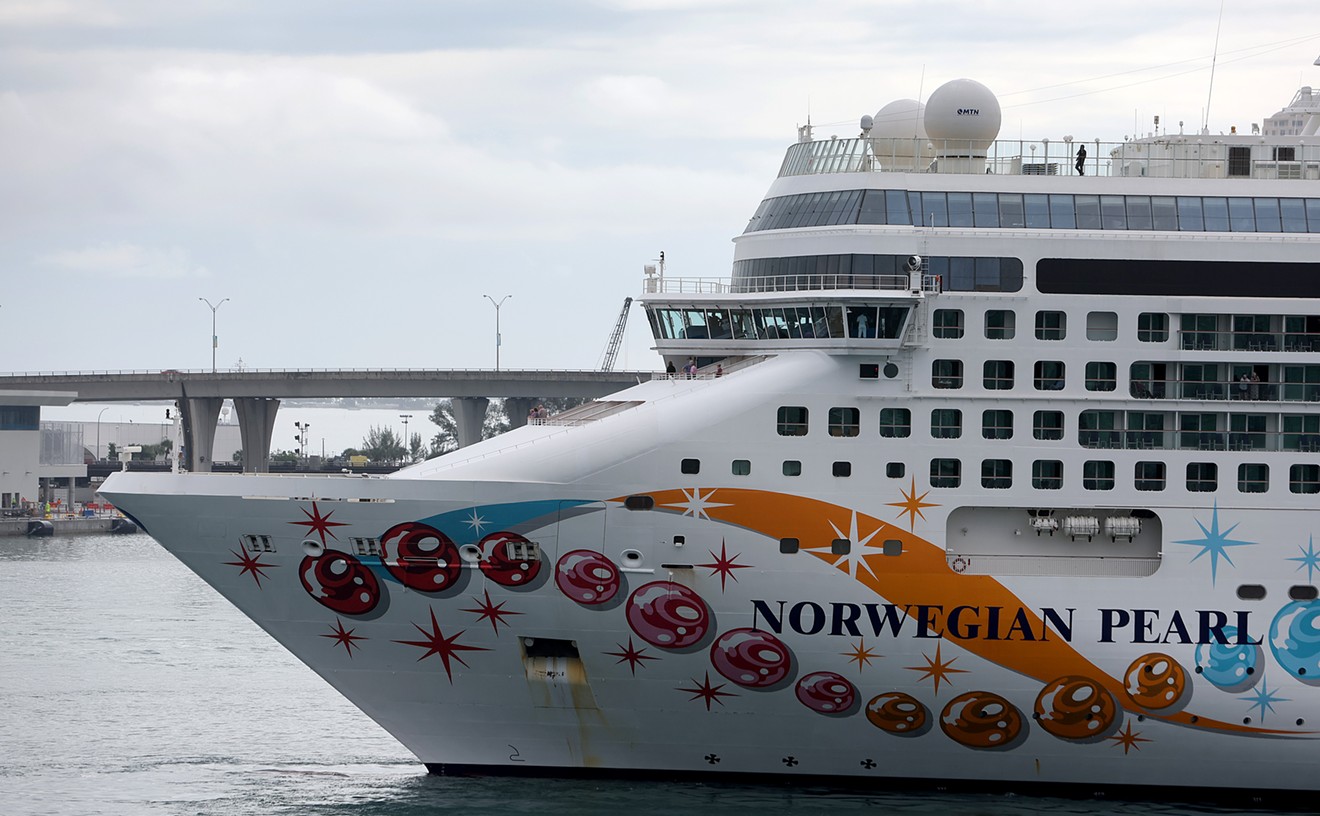Cuba's brutish suppression was unjustifiable and horrific, but demonstrations of outrage in Miami are futile. March till your shoes are worn through, it won't change anything. So why not try something that could actually produce results: a prisoner swap. Exchange the five Cuban spies now in U.S. prisons for ten times that number of dissidents incarcerated in Cuba, some of whom have been sentenced to 25 years. If the dissidents don't want to leave the island, the swap could simply guarantee their immediate release.
If a novel plan like this is to succeed, however, it needs solid credibility, and that can only be provided by Miami's Cuban exiles themselves. Just as Richard Nixon's anti-communist credentials allowed him to open relations with China, so too are staunch Castro critics perfectly positioned to sell the idea of a prisoner swap. (Besides the tangible benefit of springing dissidents from Cuban jails, a swap would burnish the exiles' worldwide image, which took a major hit after the Elian debacle.)
Cuba's spies, arrested in 1998, uncovered nothing of consequence while here. One got a job at a military air base in Key West but didn't come within throwing distance of classified information. Another failed in his bid to infiltrate SouthCom as a groundskeeper because he couldn't speak English. At trial they were revealed to be underfunded underachievers. Authorities found a box of aviation trading cards available at any hobby shop -- hardly sophisticated intel. They lived in low-rent apartments, and groused that they couldn't get by on monthly budgets of $1500. Nevertheless they were convicted and sentenced -- from fifteen years to life in prison. (Another spy, directly linked to the downing of two Brothers to the Rescue planes, fled to Cuba. One of the five arrested, Gerardo Hernandez, was convicted of conspiracy to murder involving the shootdown.)
The spies' defense was straightforward: They were trying to protect Cuba from what they believed were terrorists based in Miami. Hard to argue with that. Consider: Comandos F-4's spokesman in Miami recently boasted that his group shot and wounded a Cuban agent in Havana; four exiles are now on trial in Panama, accused of plotting to assassinate Castro (three are from Miami); in 1997 a series of bombs ripped through Havana hotels, killing one tourist.
Cuban officials claim the imprisonment of their heroic spies exposes American duplicity: Those damn yanquis can justify a bloody war based on perceived risk to their national security, but we can't send agents to monitor those who gloat about attacking us? ¡Coño!
So perhaps it's understandable that Cuba would dispatch spies to Miami. We'd do the same elsewhere if threatened by insurgents who vowed to attack the U.S. And if our operatives were captured in Iran or Syria, you can bet we'd negotiate to get them back and expect the opposing government to consider the offer. But Cuba is different. It may be a foreign country, but policy considerations are strictly domestic. For Democrats and Republicans alike, Cuba is a political third rail -- foolishly touch it and you die. Which is why only el exilio could safely push for a prisoner swap.
I'm not a total naif. The chances of an exile group championing this, let alone the Bush administration embracing it, are virtually nil -- in no small part because many believe it would in effect reward Castro for jailing dissidents. On the other hand, I didn't think it was so laughable. "This is silly," scoffs Joe Garcia, executive director of the Cuban American National Foundation. "This isn't sensible talk." And yet Garcia goes on to describe the Cuban spies as "pathetic victims of their regime" and adds: "If the U.S. found it was in its best interest to trade these people, then we probably wouldn't oppose it."
"Well, I guess you can propose whatever you like," sniffs Glenn Baker, Cuba Project coordinator at the Center for Defense Information (CDI), a Washington think tank. "But I can see both governments laughing this off." Pause. "Do you actually live in Miami?"
The CDI believes it's in our national interest to engage Cuba on security issues. "Most military leaders will tell you it's dangerous not to talk to your adversary," says Baker, alluding to heightened tension and unpredictable responses during times of crisis. To that end the CDI sponsored three trips for retired Gen. Charles Wilhelm, formerly in charge of SouthCom, to meet with the island's military officials. Baker himself sat with Wilhelm as the two sides discussed areas of mutual interest, such as drug trafficking and terrorism.
Wouldn't a spy swap serve our interests while promoting interaction with Cuba? Baker says communication between our countries is currently so bad that "the mechanism is not in place" to consider it. "Right now I don't see how you'd get the two countries together to even discuss it. Cuba has endured a lot of hostile rhetoric [from the Bush administration]," he notes, adding that such posturing is widely perceived as political payoff to local exiles for their support of Bush in 2000.
About the only person who shows enthusiasm for a prisoner swap is Paul McKenna, the Miami attorney who represented spy Gerardo Hernandez, currently serving two concurrent life sentences. "In my opinion, that would be an excellent idea," he says. "If a Cuban American had the courage to propose this, it could be the beginning of a whole new type of relationship between these communities. The Cuban leaders I've met with have expressed to me that they would do anything within reason to bring home these five men, whom they consider heroes."
Not exactly.
"This is your dream, I think," sputters Juan Hernandez, press spokesman for the Cuban Interests Section in Washington, D.C., who had me explain the idea three times. "It's impossible. It's not the same issue."
So there we are, stuck somewhere between an endless march down Calle Ocho and a lifetime behind bars.










